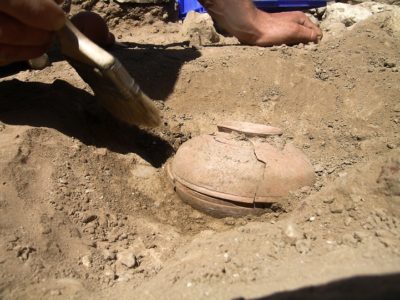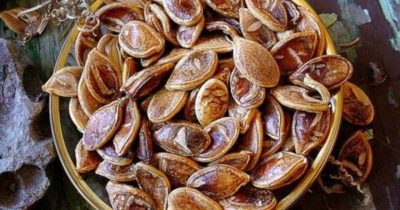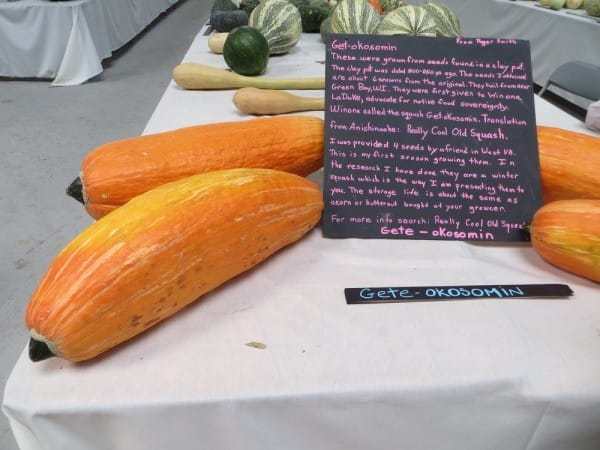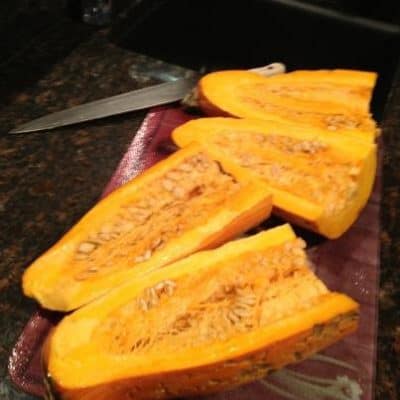
As the story goes, back in 2008, archaeologists uncovered a small clay pot on the First Nation’s Menominee Reservation in Wisconsin. The small ingredient they found inside the pot is changing the course of history.
Researchers determined the little piece of pottery must be at least 800 years old. Its contents implicate extinction, preservation, food storage and how much human existence has influenced our planet over hundreds of years.

The pot contained a stash of seeds to grow an extinct species of squash. The squash was given the name Gete-okosomin, which means “Big Old Squash” or “Cool Old Squash” in the traditional language of the Menominee tribe.
The community is now working to ensure the squash does not go extinct again. The seeds are a symbol of the Menominee’s history, and their method of preservation is a clue into the way of life of the original Menominee ancestors.
Seven years following the discovery, students in Winnepeg were given the opportunity to plant the seeds. The seeds grew! They produced big, bright orange and gold oblong squashes. Baker Creek Heirloom Seeds company describes them as “sweet, with hints of melon, and possessed of a wonderful smooth texture”.

One Gete-okosomin seed can grow a squash 2-3 feet long and weigh up to 18 pounds. The squash is described as easy to grow. For 2017, Baker Creek Heirloom Seeds is donating all proceeds from sales of the Gete-okosomin to Native American garden charitable organizations.
The story of the discovery in a clay pot has been disputed by experts who believe the seed had been cultivated for years by the Miami tribe. “This is not an abstract archaeological thing,” said Kenton Lobe, an environmental studies professor at Canadian Mennonite University in Winnipeg. “It’s a way to connect back to the first people and acknowledge their agricultural heritage.”

“It’s a delicious variety,” David Wrone, an emeritus professor at the University of Wisconsin. “And it doesn’t have the rind on it that many modern squash have. I would imagine the Miami people sliced it, dried it out and put it in the rafters of their homes. Then they could pull it down and use it in their cooking, throw it in with rabbit, corn or wild rice.” Sounds like a nice meal!
A couple years ago, the Menominee tribe gained national attention for their involvement in a federal case in 2015 when the DEA eradicated an estimated 30,000 marijuana plants on the reservation. The Menominee contested that the plants were industrial hemp for research purposes, as sanctioned for growth under a 2014 amendment to the Farm Bill. The administration’s tests came up positive for THC levels indicating the plants were marijuana.


